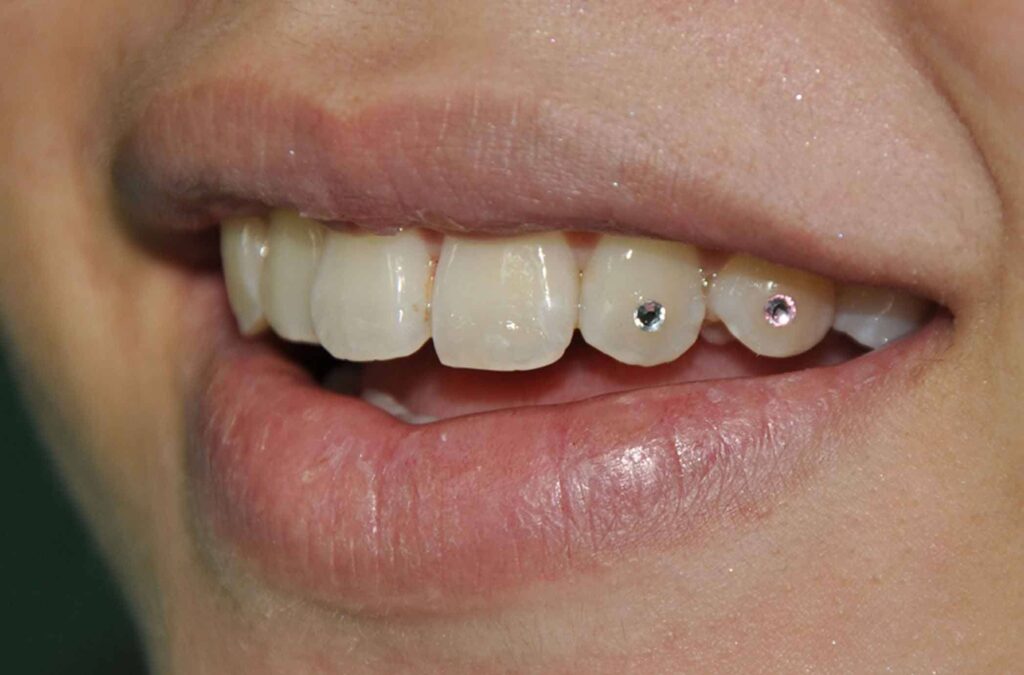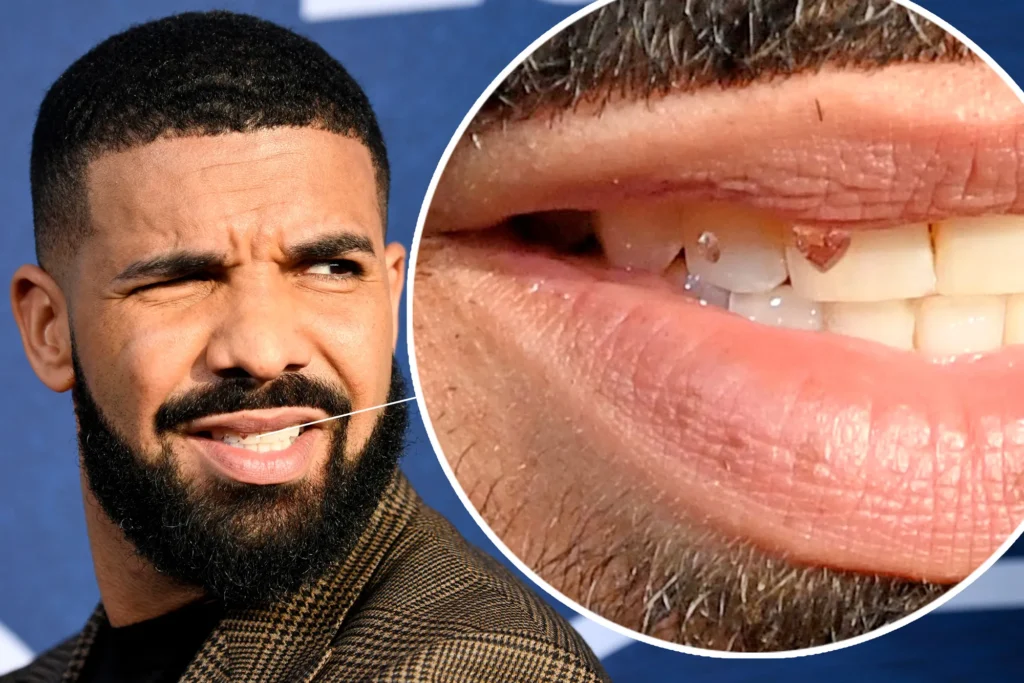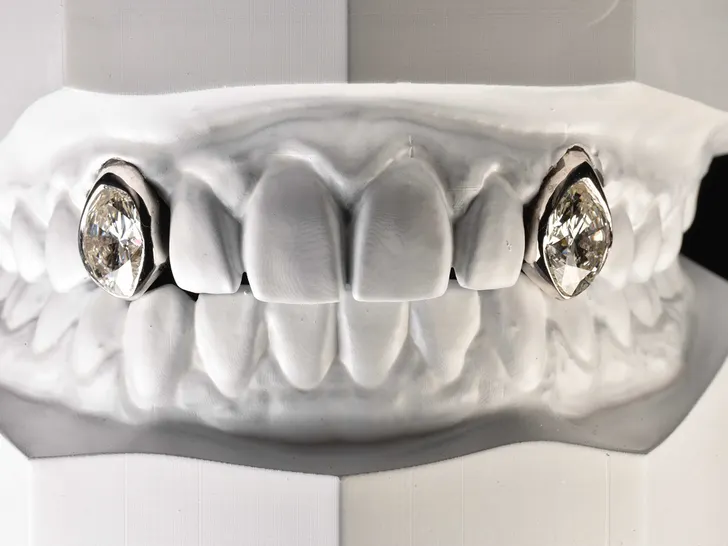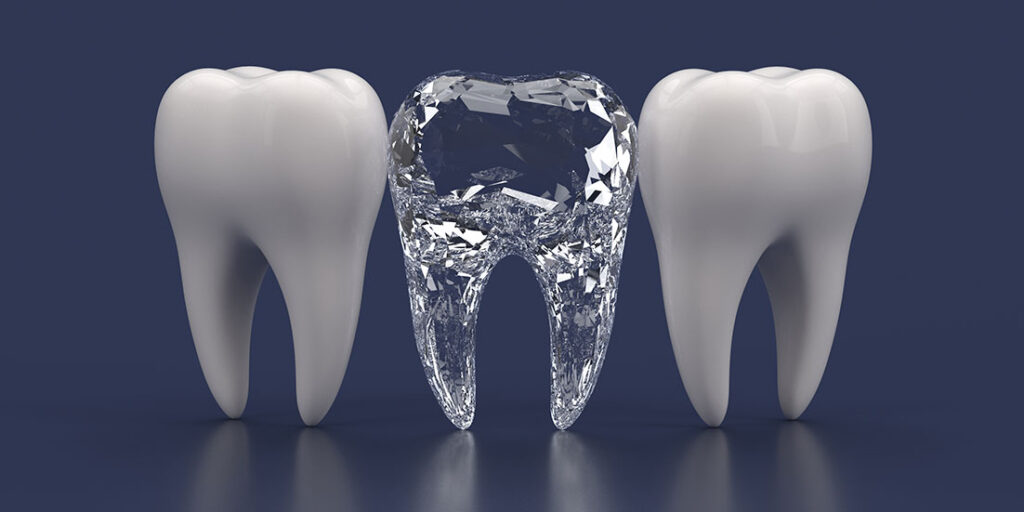When it comes to dental implants, innovation and technology have been continuously evolving, offering patients more options for replacing missing teeth and achieving the perfect smile. But have you ever heard of diamond tooth implants?
These luxurious and eye-catching dental prosthetics may sound like something out of a science fiction movie, but it is a real solution that have become increasingly popular in recent years. This luxurious and eye-catching dental procedure has taken the world of celebrity fashion by storm, offering a unique and glamorous way to combine style and oral health.
But are diamond tooth implants just for the rich and famous, or could this be the an option for anyone seeking for a dazzling upgrade to their smile?
In the rest of this article, we will explore what a diamond tooth implant actually is, and answer some of the commonly asked questions by people who are looking to get a tooth implant. So get ready to shine brighter than ever with this ultimate fusion of luxury and dental health!
What Is a Diamond Tooth Implant?
A tooth implant procedure, also known as a dental implant, is a surgical procedure to replace a missing tooth or teeth with an artificial tooth. The commonly used materials for the replacement tooth includes titanium, zicornia, ceramic, gold, and porcelain. After the custom-made dental crown is manufactured and shaped to match the surrounding teeth, it is attached to the abutment and the procedure is complete.
However, a diamond tooth implant incorporates diamonds or diamond-like materials into the design of a tooth replacement. This innovative and luxurious dental implant option is designed for individuals looking to make a bold fashion statement while addressing tooth loss.
As stated by “Diamond Dentist” Dr Anjali Rajpal, there are several different types of procedures that one can undergo to get a diamond dental implant. The first method involves the drilling of a natural tooth to create a hole and inserting a diamond into it. While this method flushes the diamond to the surface of the tooth, it is highly discouraged as a healthy tooth is damaged for aesthetic purposes.

The second, and more commonly used method involves bonding the diamond directly to the tooth surface with a special dental adhesive. While this procedure does not damage the tooth, it can cause discomfort as the diamond is jutting out from the surface of the tooth.
The third method embeds the diamond into a dental crown before attaching it to the abutment. This is only used when there is a restorative procedure and a dental crown is required.
In all three types of dental procedure, the diamond used is typically a small, high-quality natural diamond or lab-grown diamond that is chosen for its size, shape, and clarity.

The use of diamonds and gemstones as a decorative material for the teeth dates back to the late 1990s when it was seen as a status of wealth and class in the society. Fast forward to today, diamond tooth have been popularized by celebrities and musicians and are now seen as a fashion statement.
It is important to note that a diamond tooth implant is a purely cosmetic procedure and does not offer any functional benefits. It may also require extra care and maintenance to prevent the diamond from coming loose or falling off.
What Are the Pros and Cons of Diamond Implants?
Diamond implants offer a unique and luxurious option for tooth replacement; however, they also come with certain advantages and disadvantages. Here are the pros and cons of diamond implants:
Pros:
- Aesthetic appeal: Diamond implants provide a striking and glamorous look, making a bold fashion statement and potentially boosting your self-confidence.
- Durability: Diamonds are renowned for their strength and durability, which can contribute to the longevity of the dental implant.
- Biocompatibility: The materials commonly used in diamond tooth implants, such as titanium and zirconia, are biocompatible, reducing the risk of adverse reactions.
Cons:
- Cost: Diamond implants can be significantly more expensive than traditional dental implants, mainly due to the inclusion of diamonds and the complex design process.
- Potential damage: The hardness of diamonds may pose a risk of damaging the opposing natural teeth during chewing or grinding, which could lead to additional dental problems.
- Limited functionality: While diamond tooth implants can replace a missing tooth, they may not provide the same level of functionality as a traditional dental implant, particularly if the diamond placement interferes with proper occlusion or biting.
Before opting for diamond implants, it’s essential to weigh the pros and cons and consult with your dentist to discuss your expectations, concerns, and whether this type of dental implant is the right choice for your unique dental needs and lifestyle.
How Long Do Diamond Tooth Implants Last?
There is no definitive duration on how long a diamond teeth can last. However, the lifespan of a diamond tooth depends on the method of attachment, and the individual’s oral hygiene habit.
For diamond or jewels that are bonded to the surface of the tooth, it can generally hold up to 2 years before it falls off. For cases where the diamond is flushed to the surface of tooth, it can hold for as long as 5 years. Dental crowns with embedded diamonds can last anywhere from 5 to 15 years.
With proper care and regular oral hygiene habits, a diamond tooth implant can last for many years.
How Much Is a Diamond Tooth Implant?
The cost of a diamond tooth depends on the carat, design, and whether it is a natural or lab grown diamond.
Lab-grown diamonds are created using advanced technology in a controlled environment, allowing for a more consistent and predictable quality than natural diamonds. This allows the diamond to be manufactured to exact specifications, including size, shape, and color. Also, lab-grown diamonds are significantly cheaper than natural diamonds as there are no mining and processing involved.
This has made lab-grown diamond a more affordable and popular option among the general public. On average, a diamond tooth implant made with lab-grown diamond cost anywhere between $1,500 and $10,000.
In sharp contrast, to produce a natural diamond, diamond-bearing rocks are extracted from mines and processed to extract a rough diamonds. The diamond is then sorted, graded, cut, and polish to create finished diamonds. This makes natural diamonds a much more expensive option as compared to lab-grown diamonds. The cost of a diamond tooth made with natural diamond can cost anywhere between $5,000 and $60,000 depending of the carat, color, and cut.

In an article reported by TheRichest, American rapper Lil Wayne shelved out $150,000 to purchase 3 diamond teeth. This works out to $50,000 for each diamond tooth. Separately, NaturalDiamonds reported in July of 2021 that rapper and producer Post Malone spent a total of $1.6 million for two diamond dental implants. The implants, which had 12 carats in total, works out to $800,000 per diamond implant.

It is important to note that dental insurance may not cover the cost of a diamond tooth implant, especially if it’s considered a cosmetic procedure. Therefore, it’s crucial to discuss the financial aspect with your dentist and check with your insurance provider to understand what costs you may be responsible for before proceeding with the treatment.
Is It Safe to Get a Diamond Tooth Implant?
Getting a diamond tooth implant is generally considered safe, especially when performed by an experienced and qualified dentist. The materials used in diamond tooth implants, such as titanium for the implant post and zirconia or porcelain for the crown, are biocompatible and have a low risk of causing adverse reactions to the body. However, there are some potential risks associated with diamond tooth implants:
- Potential damage to opposing teeth: The hardness of diamonds may pose a risk of damaging the opposing natural teeth during chewing or grinding. It’s essential to discuss this concern with your dentist, who can take measures to minimize this risk.
- Proper occlusion and functionality: If the diamond placement interferes with proper occlusion or biting, it may affect the implant’s functionality. Your dentist will need to carefully design the implant crown to ensure it functions well with the rest of your teeth.
- Falling off the teeth: The diamonds or diamond-like crystals embedded into the crown are usually secured using strong adhesives or integrated into the material during the fabrication process, ensuring a stable and durable attachment. While the likelihood of a diamond falling off a tooth implant is relatively low, there is still a possibility that it may fall off from the surface it.
- Infection and complications: As with any dental implant procedure, there is a risk of infection or complications during the healing process. Following your dentist’s post-operative care instructions and maintaining good oral hygiene can help minimize these risks.
Takeaway
As seen in the celebrity world, diamond tooth implants have carved a niche for themselves as a luxurious fusion of fashion and oral health. However, it’s important to remember that this dental procedure comes with a considerable price tag and potential risks associated with any surgical intervention. You should always consult a qualified dental professional who can conduct an assessment and determine if this glittering option is right for you.
Ultimately, whether you choose to invest in a diamond tooth implant or explore other options, the key is to prioritize your dental health and work with a trusted dental professional to achieve a radiant smile!







